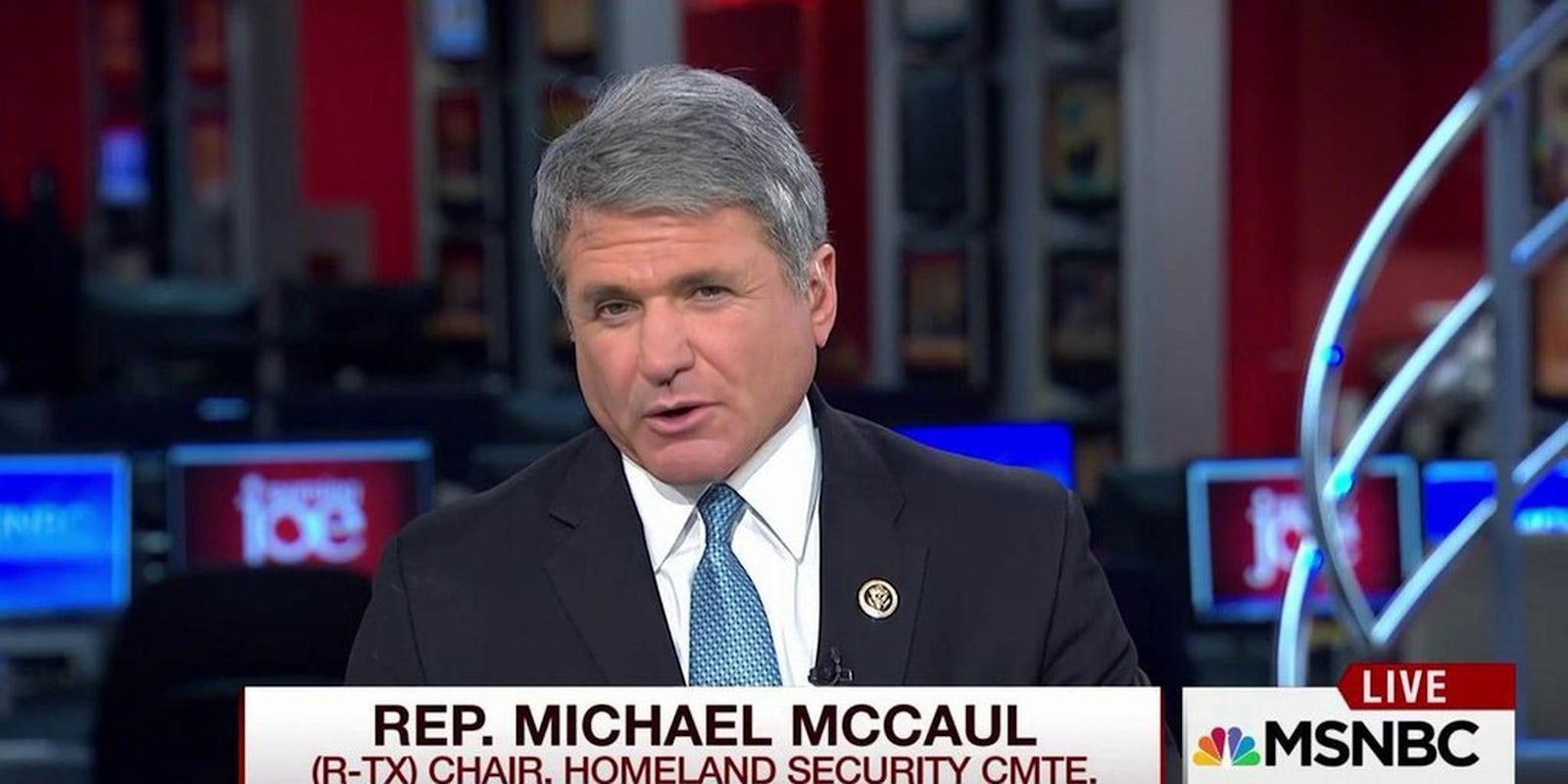The United States still faces unprecedented national security challenges in cyberspace, but a law mandating backdoors into encryption is seeming less likely as Republican leaders join the Obama administration in opposing the idea.
While the public focuses full bore on the approaching presidential election, the debate over encryption and cybersecurity is heating up again just outside of popular view. Obama’s Pentagon is openly against backdoor legislation and is instead “quietly” courting private industry help on the issue.
Now, a top Republican is slamming the idea even while a potential new bill on the matter is being circulated among U.S. lawmakers.
“I think [backdoor legislation is] a knee-jerk response that will have unintended consequences,” House Homeland Security Chairman Michael McCaul (R-Texas) said on Thursday to the Internet Security Alliance.
“It’s a simplistic solution to a very complicated problem” that would “drive technology and innovation offshore,” McCaul continued.
McCaul is a key figure in the debate not only because he chairs the House Homeland Security Committee, a crucial body in determining national security issues, but also because he proposed a national commission on encryption that’s been backed by Democratic presidential nominee Hillary Clinton.
The congressman urged action, however, because the specter of a new terrorist attack threatened to impact the cybersecurity debate. This same sentiment has been echoed on all sides of the encryption conversation, including from FBI Director James Comey and NSA Director Michael Rogers.
Politico reporter and former Daily Dot contributing editor Eric Geller reports:
McCaul: If there’s a terrorist attack tomorrow, “the backdoor bill’s gonna come out again…there would be more momentum” to pass it.
— Eric Geller (@ericgeller) September 15, 2016
McCaul: Encryption debate is about security vs. security, not privacy vs. security. (True!) #CyberSC
— Eric Geller (@ericgeller) September 15, 2016
McCaul’s encryption commission proposal has been slammed by civil liberties activists for several key reasons.
The commission does not investigate current U.S. government capabilities on attacking encryption, a key part of the equation. Law enforcement and intelligence make up a large chunk of the commission. And finally, as Mark Jaycox, a civil liberities lawyer at the Electronic Frontier Foundation argued, the whole proposal ignores most technical experts’ opinions that encryption standards must remain strong.
“Indeed, the very existence of the Warner-McCaul bill will be used to prolong an unnecessary conversation,” Jaycox wrote. “We don’t believe such a commission should pass Congress, and we hope the president vetoes it if it does.”
While Clinton supports the commission, Trump has never gone into this level of detail on cybersecurity policy. He’s spoken about boycotting Apple (he still uses Apple products) and “closing the internet” to win a cyberwar. Beyond a few applause lines, Trump policies are anyone’s guess.
Contact the author: Patrick Howell O’Neill, pat@dailydot.com, @HowellONeill


